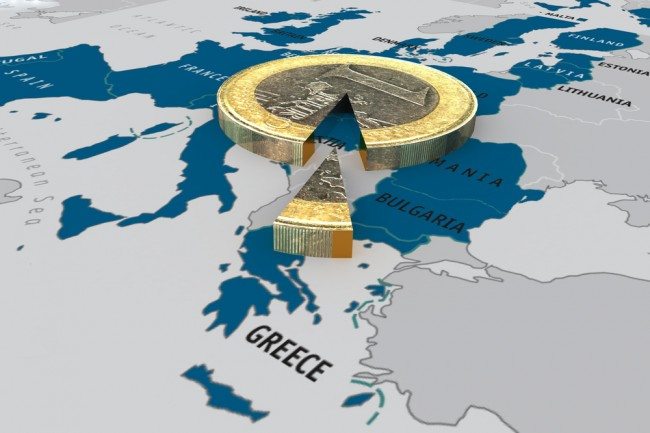Angela Merkel has urged the government in Athens to capitulate before markets open next week, as the European Central Bank (ECB) prepares for capital controls and a Greek banking collapse. “We will not be blackmailed by Greece,” she told a meeting of centre-right leaders before a European Union summit in Brussels yesterday.
EU officials confirmed that, unless Greece signs up to proposals tabled by its creditors today, a Greek default on debt was “inevitable”, reports The Times.
Syriza, the radical left-wing governing party in Greece, is preparing a popular vote on the plans for August. Senior officials have accused eurozone nations of setting in motion a “coup d’état scenario” by demanding instant acquiescence to a deal.
Alexis Tsipras, the prime minister, faced intense pressure at a Brussels summit last night as EU leaders tried to persuade him to avert a Greek exit from the euro and economic catastrophe for his country.
During summit talks last night Mr Tsipras was slapped down by Mrs Merkel when he tried to raise the issue.
“There is a deep gap between the wishes of the institutions and the Greek people,” he said, according to a confidential diplomatic note of the talks seen by The Times. “No agreement yet is due to the extreme position of the IMF. EU leaders must take responsibility for the future of Europe.”
Mrs Merkel replied curtly: “I don’t want to talk today.”
Informal talks will continue today in the wings of a European Council, and tomorrow an emergency meeting of eurozone finance ministers will present an ultimatum to Greece. “If the Greeks say no, they’ve pulled the trigger and that’s it — game over,” said an official.
Today is the final deadline for negotiations because the Greek parliament must pass “prior actions” legislation on Sunday and Monday before a further €7.2 billion in loans can be unlocked for Greece. EU officials said that the eurozone-IMF offer was already set in stone, and had been sent to Germany’s parliament for legal preparation before a vote by German MPs on Monday, if Greece signs on the dotted line.
On Tuesday, Greece will default on €1.6 billion in debt instalments owed to the IMF unless the eurozone extends a bailout programme. If the Greek government signs, the ECB will release €1.9 billion in funds from Greek bond purchases to pay back the loans. If Greece does not sign, the ECB will, before markets open on Monday, pull the plug on €89 billion in emergency assistance to Greek banks — pushing the country into financial insolvency and banking collapse.
Jeroen Dijsselbloem, the Dutch finance minister and the chairman of the eurozone finance talks, told the Greek government that it had a simple choice: to sign the deal as offered, or walk away without the loans it needs.
“There is still a wide gap with the Greek authorities,” he said.
“The door is still open for the Greek authorities to accept the proposals tabled by the institutions.”
Hans Jörg Schelling, his Austrian counterpart, cautioned Greece that the eurozone had prepared measures to isolate it, ranging from capital controls to exit from the euro. “It’s amazing how carelessly the Greek government is dealing with its country,” he said.
There was widespread optimism four days ago that Greece was moving to compromise, but the mood in Brussels corridors was grim yesterday as deadline after deadline passed.
During a day of frantic negotiations, Mr Tsipras held almost constant talks with Christine Lagarde, the IMF chief, Jean-Claude Juncker, the European Commission president, and Mario Draghi, head of the ECB. “It was brutal, very brutal. No more nice guys. This was power play,” said a diplomat.
As talks broke down yesterday, a haggard Mr Tsipras telephoned President Pavlopoulos and alerted him to the need to hold early elections or a referendum in the national interest, as soon as August 2.
“The understanding between the two men is that if Tsipras is served with a take-it-or-leave-it proposal by creditors then the prime minister will take it back to the people,” said a Greek source.
Greece’s creditors are demanding, among other things, that it increase the VAT rate on milk, cheese and olive oil. “They want to make Greek food — olive oil and feta — unaffordable. Not satisfied with that, they want to destroy the only bit of our economy that works,” said an emotional official.
Growing numbers of Syriza MPs and ministers are convinced that the eurozone and IMF are trying to push the government to breaking point, in a repeat of the 2011 crisis when Lucas Papademos, a former ECB member, was installed as prime minister.


